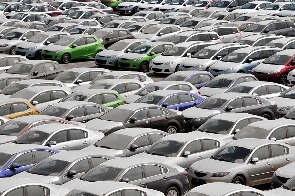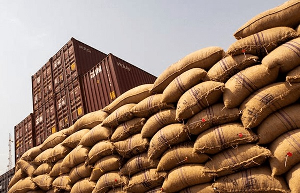The fast-growing automobile industry in sub-Saharan Africa has been projected to slow down significantly due to unfavourable policies and anticipated detrimental effects of substandard or poor-quality fuel on the market.
According to automobile manufacturers, the quality of fuel used by most countries in the region is very poor, posing a threat to the sustainable growth of the industry, as brand-new vehicles come with advanced technologies that cause engine breakdown or shorter lifespan when powered by substandard fuel.
More worryingly, 41 out of 54 countries on the continent do not have vehicle emission standards – while most vehicles in Africa are without any form of emissions control and have outdated safety systems, with new advanced vehicles at higher risk of malfunction due to poor fuel quality.
Again, the average vehicle age is 10-15 years, influenced largely by the influx of salvaged or second-hand vehicles from the American and European markets – slowing the sales of locally manufactured vehicles while increasing environmental pollution. The continued usage of these vehicles poses a significant threat to climate change mitigation initiatives and sustainable environment development.
The use of poor-quality fuel threatens both vehicles and the environment, raising serious concerns about the commitment of African leaders to goals set by the Paris Agreement and 2021 United Nations Climate Change Conference (COP26) that they signed onto.
Chairperson and Managing Director for Volkswagen (VW) Group South Africa, Martina Biene, lamented that without urgent forward-looking policies backed by strong political will and adoption of globally acceptable fuel standards, little can be done to grow local production on the continent to the expected capacity.
Madam Martina, who was addressing journalists from the region in Kariega-South Africa, during a media tour of Africa’s premier vehicle manufacturing plant, stressed that introducing new models of cars to markets in the sub-region that do not conform to the Euro (EU)-2 to EU-6 fuel quality standards will cause frequent breakdowns and increased maintenance costs – which is not economically viable to both the clients and producers.
“The presence of sulphur in fuel reduces efficiency of catalysts, and therefore reductions in sulphur would immediately translate into reductions in vehicle emissions and particulate matter – subsequently increasing the catalyst’s life and ensuring longevity for the vehicle’s lifespan.
“Regulating emissions will protect the environment. If we are able to get emissions and fuel quality standards right and work together, Africa will benefit significantly,” she advocated.
Head of Product Engineering, VW Group SA, Rehan Strydom, explained that substandard fuel typically contains higher levels of impurities, including sulfur which poisons emission control systems and impairs oxygen sensor functionality; and also manganese, which blocks catalytic converters – resulting in various mechanical issues and reducing engine performance. These impurities also contribute to increased emissions, exacerbating environmental concerns such as air-pollution and negative impacts on human health.
Furthermore, the burden of poor fuel quality is not limited to private car owners but extends to commercial vehicles, including trucks, buses and taxis. This not only affects businesses dependent on reliable transportation, but also hampers economic growth in the region.
Poor health conditions
Air pollution is a major cause of disease and death. When dirty air blankets the environment, the most vulnerable urban populations such as children, the aged and poorest are most-impacted. According to the World Health Organisation (WHO), the decline in urban air quality is associated with stroke, heart disease, lung cancer and chronic respiratory diseases.
When health conditions deteriorate, production levels drop; and government will also have to invest more in social interventions and health infrastructure.
Nigeria’s fuel quality
The African Association of Automotive Manufacturers (AAAM) has indicated that it is highly non-recommendable to introduce advanced technology models of vehicles to some markets on the continent; with Nigeria being one of the big nations identified when it comes to terrible fuel quality.
This stand follows a fuel-sampling test report on the Nigerian market, which has shown that newer technology vehicles have no chance of longevity except by tampering with the fuel standard technology; just as is being done by importers of the salvages vehicles from Europe and America.
According to the Global Strategy, a market study shows that Nigeria’s high diesel sulphur fuel standard impacts Benin, Togo, Ghana, Burkina Faso and Mali, because the ships that bring in refined products for Nigeria also supply other importing countries.
Morocco, Kenya leading the way
Two markets leading the way are Morocco and Kenya, which have already reached EU-4 emissions standards and have EU-5/6 in their sights. Ghana, Kenya and Rwanda have also already committed to goals set by the Paris Agreement and 2021 United Nations Climate Change Conference (COP26).
The Volkswagen group emphasised that cleaner fuels will promote the sale and trouble-free operation of Volkswagen products and other vehicle brands which have higher emissions standards, while sub-standard or ‘poor’ fuel quality will negatively impact both new- and old-technology vehicles. This is worse for the environment and has a negative impact on vehicle-technology.
Attainment of better fuel quality standards
Sub-Saharan African governments, in collaboration with fuel suppliers and relevant regulatory bodies, have the capacity to urgently address this concerning issue. It is crucial to establish and enforce stringent fuel quality standards to ensure the longevity of vehicles, protect the environment, and safeguard growth of the automobile industry.
Additionally, investment in upgrading refineries, improving fuel transportation infrastructure, and adopting cleaner fuel technologies is imperative. By developing and implementing these measures, SSA can attract more foreign direct investment while achieving sustainable economic development.
It is important to note that governments are often reluctant to impose higher fuel quality standards because of the costs that will be imposed on local refining sectors – or in the case of import-dependent markets, passed on directly to taxpayers or fuel consumers.
Business News of Wednesday, 28 June 2023
Source: thebftonline.com













